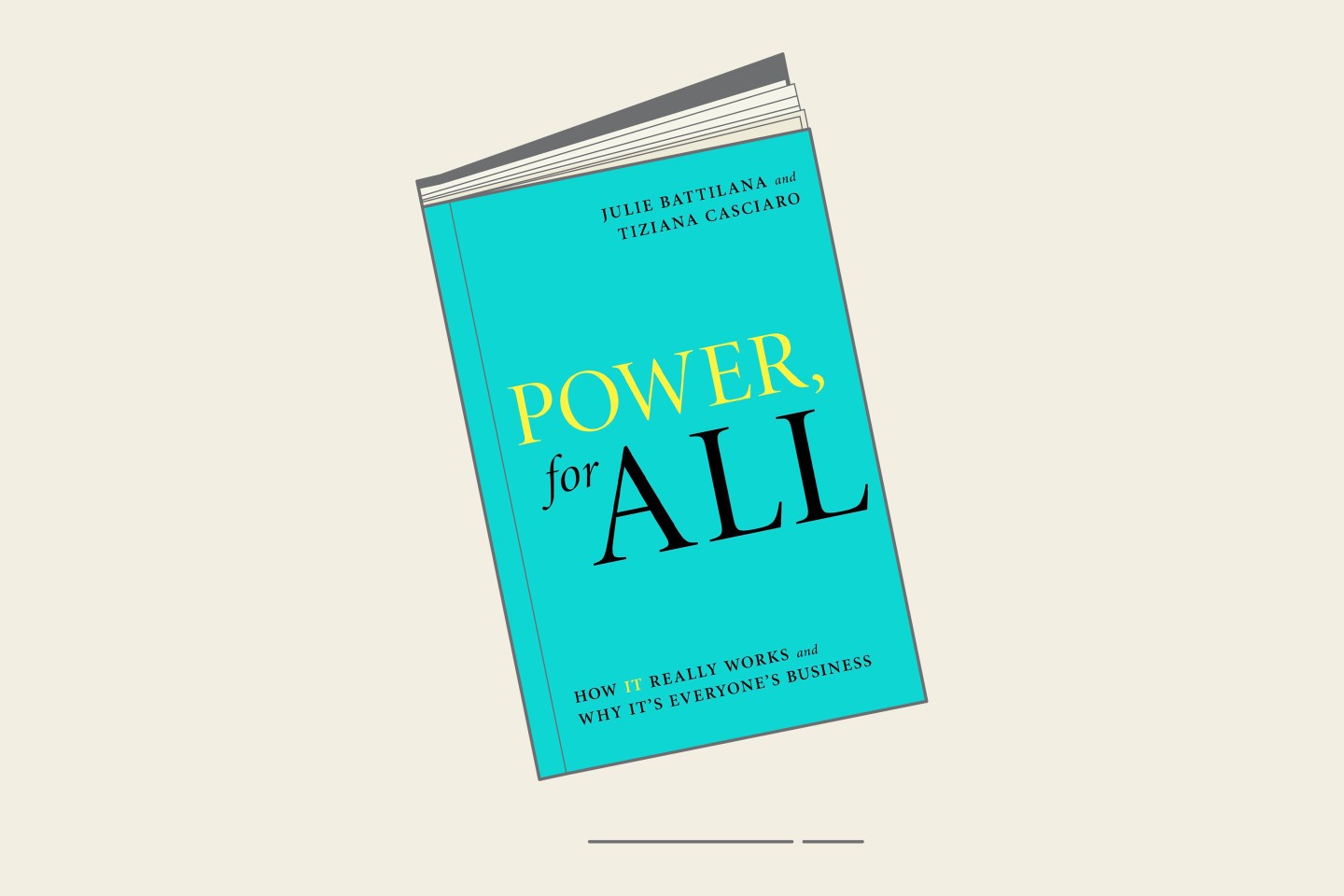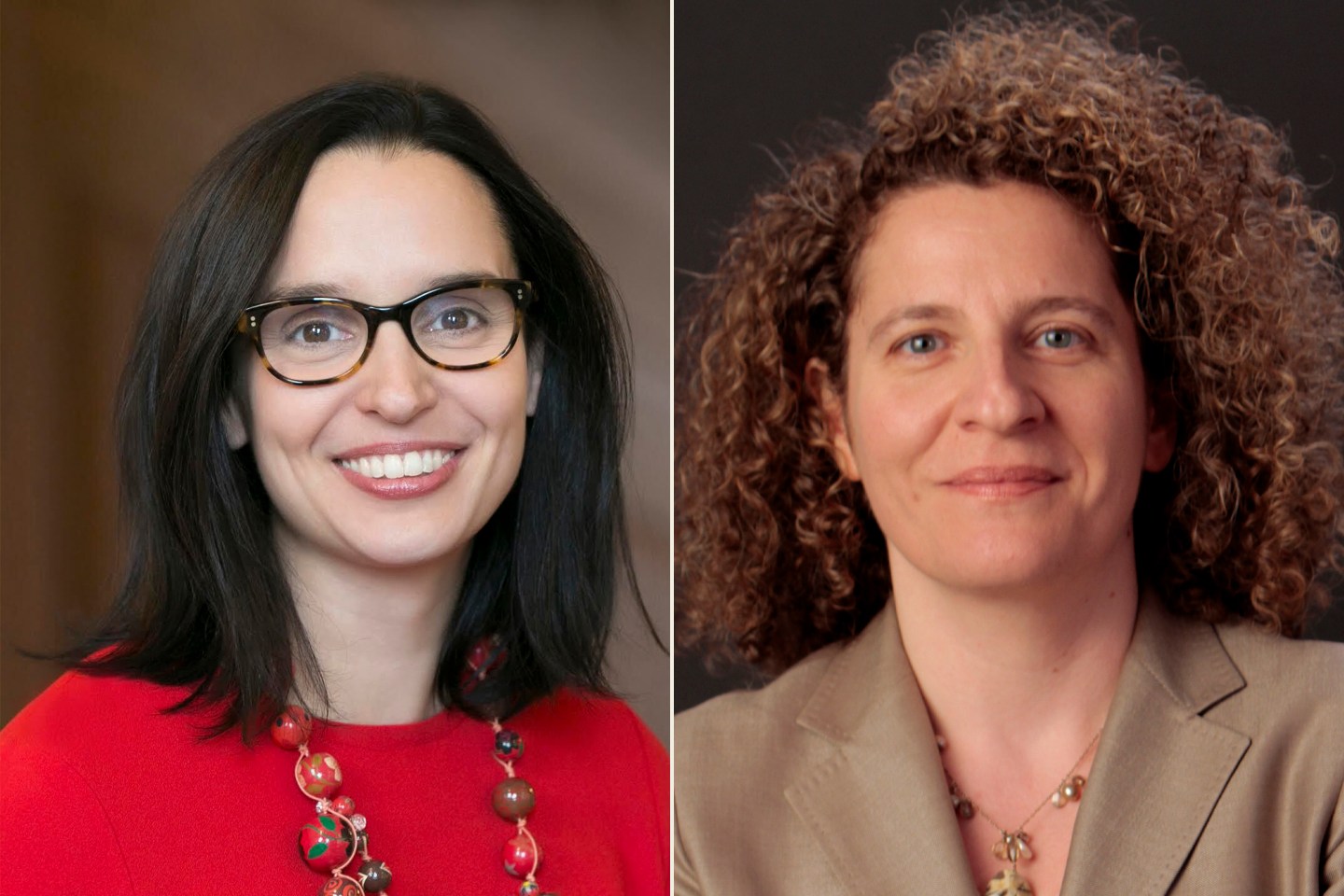How Donatella Versace prevailed in the aftermath of her brother Gianni’s tragic death

We’ve spent the past two decades studying and teaching power dynamics, researching the politics of change in organizations and society, and advising leaders, professionals, and changemakers across sectors around the world. Over time, we have come to realize that most people struggle with power. They either don’t want it, because they feel that power corrupts, or they decide that they just can’t have it, because power is only for those at the top. Many want to change their lives and those of others for the better, but don’t know how to harness power and have the impact they aspire to.
So, we truly understood Donatella Versace when she shared with us that, even as one of the most famous and influential figures in the fashion world, she had struggled for years to find a healthy relationship with power and establish herself as a respected figure in her company and her profession.
In our book, Power, for All: How It Really Works and Why It’s Everyone’s Business, we tell Donatella’s story and many others to debunk the fallacies people harbor about power. Our objective is to change how people see power: not just as a blunt tool reserved for the privileged few, or as a dirty business that one should stay away from, but as energy for everyone to harness to make our life, work, and society better. So, while Machiavelli wrote his renowned essay about power for a 16th-century Italian prince, we wrote this book for everybody, including those who have been excluded from power for too long.
The excerpt from Power, for All below dives into Donatella’s story and the obstacles she had to overcome to get where she is today, and it offers a glimpse into power’s inner workings and the imperative of building strong networks, a crucial tool in claiming your power that is ultimately accessible to everyone.

Donatella Versace never wanted the power that befell her on July 15, 1997. On that day, her brother Gianni—the creative genius behind the Versace empire—was murdered in Miami Beach. Overnight, Donatella found herself at the creative helm of the company her brother had dreamed up and turned into a global force in the fashion industry.
Despite Donatella’s role as Gianni’s closest adviser—and the only family member to work with him on the creative side of the business—few people inside or outside the company thought she could design fashion the way her brother had when she officially replaced him as Versace’s creative leader.
“Nobody believed in me—not even my team. To them, I was just the little sister of a great genius,” she told us. “I had a seat on the board of directors, but in the eyes of the other board members, I was there only because I was the founder’s sister.” At a loss for allies to sustain her, Donatella needed to be powerful and feel powerful, but power eluded her.
Our research shows that networks can be bases of power, and Donatella Versace’s network was ultimately essential to her success. What kinds of relationships would you have advised her to seek out? The challenge she faced was that the company and the industry saw her as lacking control over the resource that was critical to the company’s survival and success: the extraordinary creative talent on which Gianni had built Versace. She had to change this perception, not only in the eyes of company employees and industry executives, but also in her own mind. But who could champion and help her? Other women in the company and beyond? Or the men who wielded—and still wield—the greatest power in the fashion industry?
Stereotypes about how women relate to one another in the workplace point in opposite directions. The negative stereotype of the catfight is alive and well, as is the persistent image of the queen bee who can be lethal to junior women coming up the ranks.
The positive counterview is that women find colleagues in one another, and that their common experience paves the way for meaningful bonds. For an illustration, consider the “amplification” strategy women in the Obama administration devised to help one another get heard during the President’s first term in office. After one woman offered an idea, if it wasn’t acknowledged, another woman would repeat it and give her colleague credit for suggesting it.
Which view of women’s working relationship is true? When she builds her network of professional contacts, whom should a woman prioritize: other women or men? We set out to answer these questions by collecting data on over 5,000 middle managers—40% of them women—at a large North American bank. Supervisors, subordinates, and peers rated the middle managers along several criteria, including how energizing, trustworthy, competent, reliable, and willing to share networks and resources a manager was. We had 23,648 evaluations to analyze, and clear patterns emerged.
Women rated other women more positively than they rated men on all criteria. The evidence for solidarity among women was so stark that we initially questioned it. Perhaps the relatively large number of women employed at this bank made it unusual in some way? Did conducting the study in 2017, when women’s rights issues were more in the news than they had been, skew people’s answers? To check, we resurrected data we collected in 2006 in a technology corporation headquartered in the United States. Even in this male-dominated environment, we found a similar pattern across the 9,452 work relationships we measured: On average, women were good to other women. And here gender solidarity extended to men, too, who were more generous in their evaluations of other men than of their female colleagues.
When we share this finding with professionals, surprise is the most common response. “Really?” Women are generally just as surprised as men.
A notable exception? Donatella Versace. “I’m not surprised at all,” she told us. “I have found enormous strength in the solidarity of women.” Being the only woman on Versace’s board at the time of Gianni’s death had made a difficult situation even more challenging. “I struggled mightily for years.”
Over time, Donatella built the support she needed to be effective. “I met strong, determined women.” Some were insiders, while others were executives and leaders in other industries. Four of them became allies, sounding boards, and constructive critics who joined Versace’s board. “Finally, I had people who had full confidence in my ability and pushed my thinking to make me better, not to take me down. Deep inside, I always knew I was capable, but these women gave me the belief in myself that had eluded me for years after Gianni’s death.”
Donatella’s insight aligns with research on the networks that help new MBAs land leadership positions. Unsurprisingly, both male and female graduates achieve higher-level job placements when they have many connections in their student network. But to get executive positions with the highest levels of authority and compensation, women need one more thing: an inner circle of close ties with other women. Women who have both many connections and a female-dominated inner circle have an expected job placement level that is 2.5 times greater. Because of their bond, these fellow women are highly motivated to share knowledge with one another, as well as new connections important for women’s job market success. Without a tight-knit group of women who go out of their way to support one another, they don’t score prestigious leadership positions at nearly the same rate, even when they have the same qualifications as their male counterparts.
The implications of these findings are both exciting and worrisome. For women struggling to make it in a man’s world, being able to count on the support of other women is a relief. But does this also mean we ought to engage in gendered networking to build our power bases at work? And what about differences other than gender? Should other social groups who face challenging political landscapes—racialized groups, the LGBTQ+ community, or people with disabilities, for example—network with one another before engaging with others in the workplace?
Connecting with people who are similar to us is appealing because we understand them better than people who are different from us, and we see ourselves reflected in them and validated by them. This is a fundamental law of human relationships: Birds of a feather do flock together. Yet, it calls for caution about relying on demographic similarity in your network building. For one, the power of solidarity can only be harnessed if your social group exercises a degree of control over valued resources. And when your social group is a small minority in your work environment, the likelihood of people like yourself occupying powerful positions in it is low.
Even more important, confining ourselves to people like ourselves is terribly limiting and, in the long run, detrimental. That’s why Donatella Versace, even while realizing the unique strength she could derive from the solidarity of women, was careful to maintain a healthy mix of men and women with diverse backgrounds and experiences on Versace’s board of directors.
In fact, nearly the entire world is represented on her creative team. “I scout for designers far and wide. We have Chinese, Indian, English, Italian, American, and Filipino designers. And I love how they relate to each other. They all bring different world views, incredible stories, and the most fascinating conversations emerge and change our thinking,” Donatella told us. The purposeful breadth in her network gives Donatella access to her most valued resource: creativity.
Dive into stories from Fortune’s print edition:
- Crypto traders anonymous: A new addiction takes hold for many as cryptocurrency goes mainstream
- How Toyota kept making cars when the chips were down
- Ethereum risks it all on going green
- NFTy 50: The most influential builders, creatives, and influencers in the NFT world
- The war to charge your electric car is powering up
Subscribe to Fortune Daily to get essential business stories delivered straight to your inbox each morning.